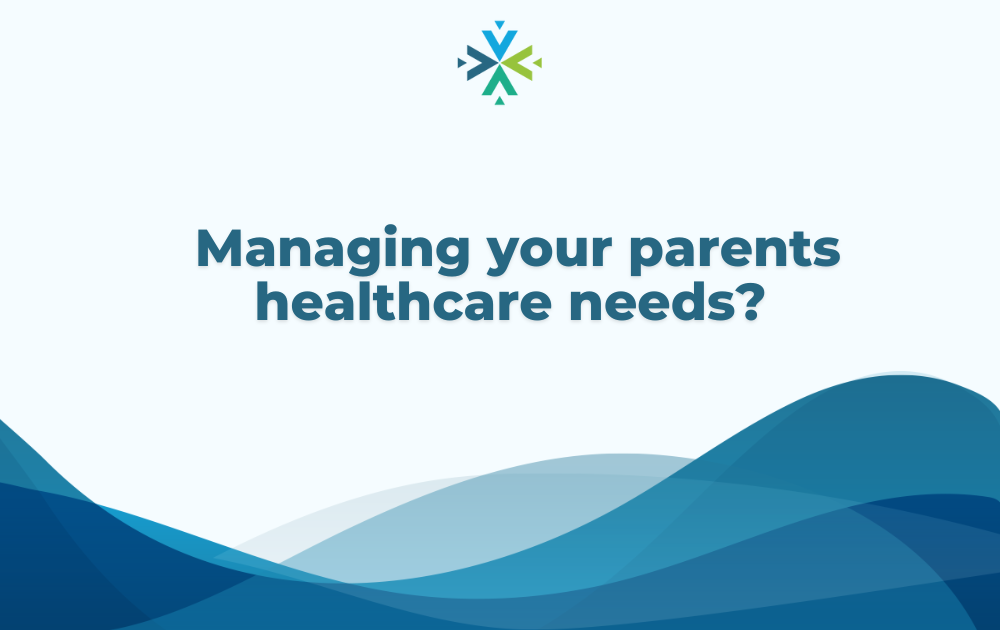Do you manage your parents Healthcare needs and services? It can be overwhelming! Are you doing the right things to help them?
Here are some essential steps to help you manage and plan for your parents current and future needs.
- Communication and Understanding: Open communication is crucial. Talk with your parents about their healthcare preferences, medical history, current health conditions, and any specific needs or concerns they have. Understand their values and wishes regarding medical decisions and end-of-life care.
- Create a Healthcare Plan: Develop a comprehensive healthcare plan for your parents. This plan should include details about their health insurance plans, providers, medication schedule, upcoming appointments, and any ongoing treatments or therapies.
- Organize Medical Records: Collect and organize your parents’ medical records, including diagnoses, test results, and treatment plans. Keeping all relevant information in one place can help healthcare providers make informed decisions.
- Advance Directives and Legal Documents: Ensure that your parents have completed important legal documents such as a living will, durable power of attorney for healthcare, and a healthcare proxy. These documents outline their healthcare wishes and appoint a trusted individual (usually an adult child) to make medical decisions on their behalf if they become unable to do so themselves.
- Coordinate Medical Appointments: Help your parents schedule and coordinate medical appointments with specialists and primary care physicians. Accompany them (or hire someone) to take them to appointments and ask necessary questions. This ensures clear communication and continuity of care.
- Medication Management: Keep track of your parents’ medications, including dosage instructions and potential side effects. Set up a system to ensure they take their medications as prescribed or hire someone to assist them. Hospitalizations often occur due to poor medication management.
- Monitor Health Conditions: Keep an eye on any chronic health conditions or changes in their health status. Regularly communicate with their healthcare providers and address any issues promptly.
- Support Independence: Encourage your parents to maintain their independence and stay active when possible. Offer support for activities of daily living (ADLs) without taking away their autonomy. Look into community services that can help to support them.
- Home Safety: Assess and address any potential safety concerns in their home. Install necessary safety equipment and make modifications to prevent accidents. Contact local services or a homecare agency to provide guidance.
- Support System: Engage other family members, friends, or community resources to create a support system for your parents. This can help prevent feelings of isolation and provide additional help when needed.
- Caregiver self-care and support: Recognize that caregiving can be emotionally and physically demanding. Take care of your well-being and seek support from others if needed.
- Emergency Preparedness: Have a plan in place for medical emergencies, including contact information for emergency services and a list of critical medical information.
Remember, every situation is unique, and healthcare management is based on individual needs and circumstances. Regularly assess their care plan and insurance coverage and to make sure they get the best possible care for their needs..
At Healthcare Pathfinder, we help create peace of mind for our clients.
Click here to contact us if you need help or more information on how Healthcare Pathfinder can help you and your family. We are a fee-for-service professional healthcare advice, advocacy, and management firm. We do not sell insurance or share commissions.

